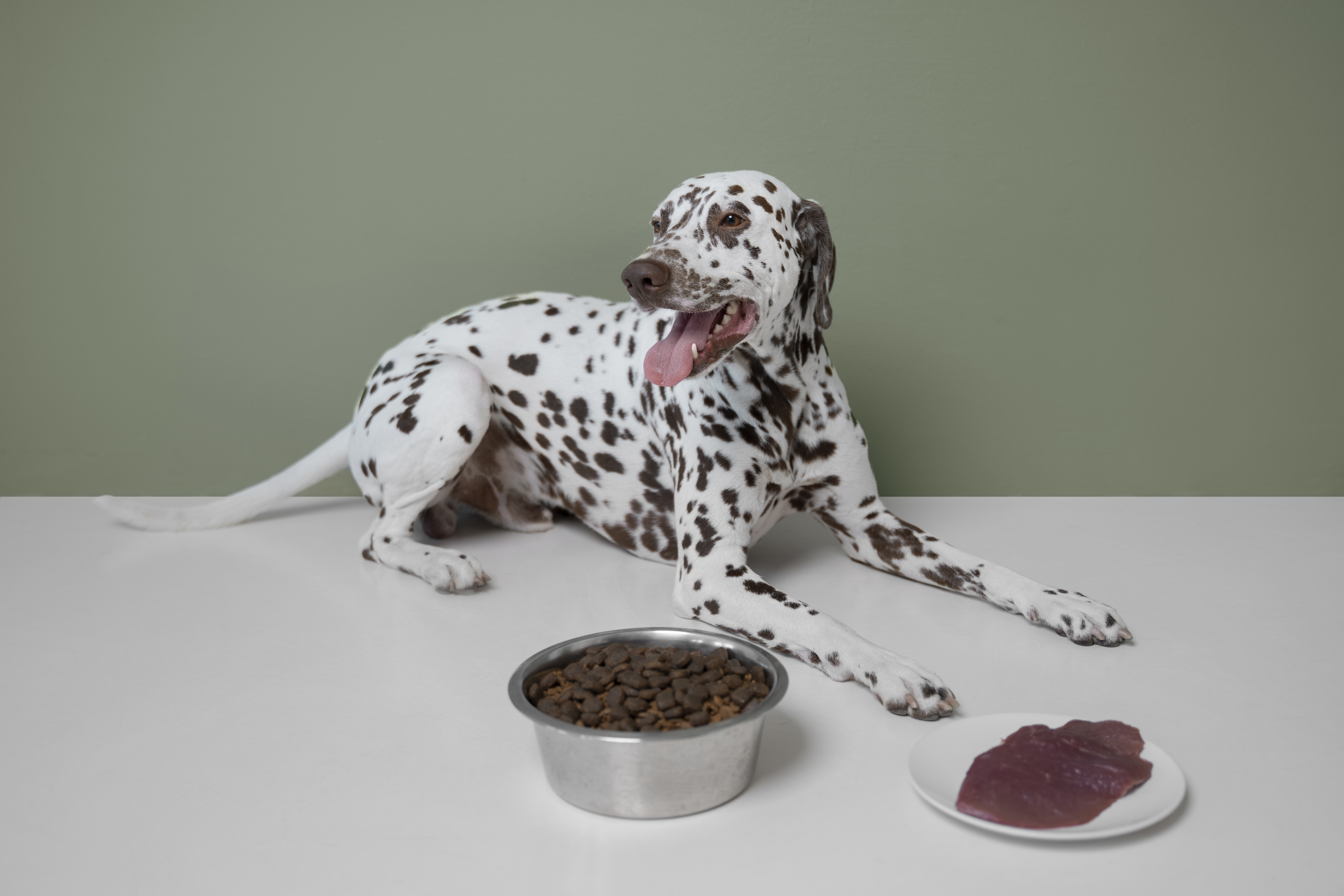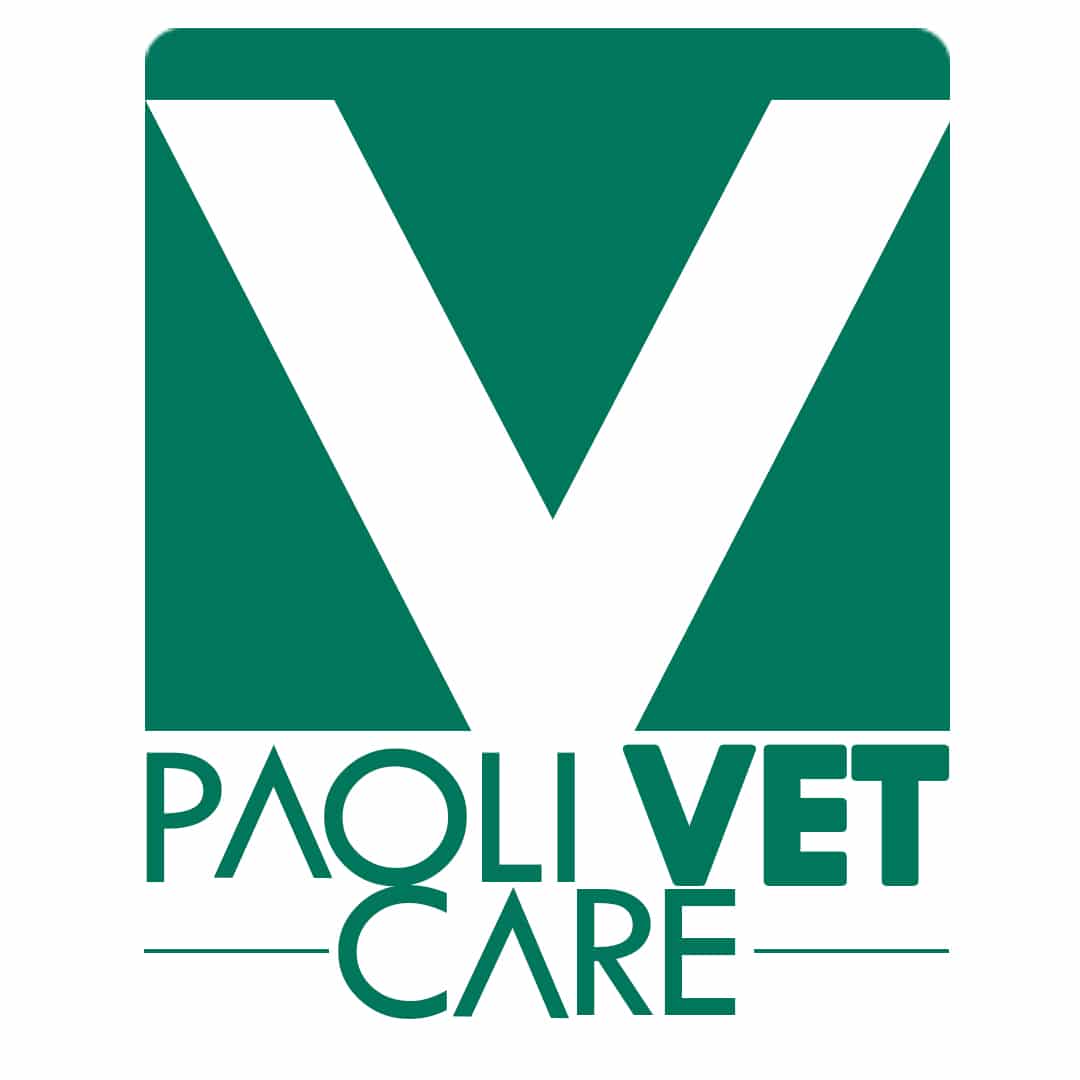Dogs, just like humans, suffer from allergies. It’s important to find high-quality dog food that doesn’t contain fillers or allergens, ensuring your furry friend won’t deal with gastrointestinal issues, itchiness, or other skin conditions. As pet parents we want our pups to be happy and healthy, and that starts with a proper diet.
Some dogs have very sensitive stomachs. With a little bit of research and communication with your local trusted veterinarian, you can learn more about food sensitivities, allergens, and other things that lead to your dog’s upset tummy.
Why You Might Need Dog Food for Allergies
Table of Contents
Specific dog foods can help with dog skin allergies and upset stomachs. Avoid dog foods with fillers or common allergens, and ask your veterinarian for advice whenever you decide to start your dog on a new diet.
Skin Allergies
Dog food allergies can commonly manifest as skin problems. Itchiness, redness, rashes, and ear infections can all be caused when dogs with sensitive stomachs consume low-quality proteins or allergens.
Digestive Issues
Dogs can have allergic reactions to poor dietary choices, which can cause diarrhea, vomiting, and general discomfort. Your dog needs a balanced, healthy diet that’s customized around their needs.
Yeast Infections
Just like humans, high-carb diets aren’t very healthy. Plus, they can foster yeast growth in dogs, which causes infections. Excess carbs and sugar can lead to skin irritations and itchy ears. Yeast infections can cause chronic pain and exacerbate existing illnesses, and they should be treated as soon as possible.
What Are Common Dog Food Allergens?
Dogs are commonly allergic to proteins such as beef, lamb, and wheat. Some dogs are allergic to eggs, soy, corn, nuts, and other fillers that can bulk out cheap dog food.
It’s tough to test dogs for allergens, and most available testing just isn’t reliable. Some veterinarians might recommend elimination diets to help discover what your dog is allergic to, or will suggest prescription diets and specific foods.
Elimination trials start by removing proteins from your dog’s diet for weeks or months to discover what they are allergic to. The body has enough time to eliminate old protein sources, heal from chronic allergy stimulation, and return the digestive system to its normal function.

Dog Food Allergy Symptoms
Once allergens are absorbed into the intestinal tract, they trigger an immune response that manifests as skin problems, such as chronic pain or itchiness. Allergens can also cause dogs to develop inflammatory bowel disease, such as diarrhea, vomiting, or decreased appetite.
Symptoms of dog food allergies include:
- Redness of the skin/ears
- Itchiness
- Hematomas
- Chronic infections and pain
- Redness and itchiness between the toes
- Patchy hair loss
- Chronic skin infections or yeast infections
The most common symptom of dog food allergies is skin issues. These allergic reactions are caused by absorbed proteins, and can weaken the bond between skin cells and weaken the skin barrier. Allergens can also cause additional health concerns in your dog, and make them more susceptible to infections.
How To Help a Dog With Food Allergies
We discussed elimination food trials above, which are the best way to diagnose and treat a dog’s food allergy. Elimination trials can take up to three months to complete, and while they can be a lot of additional work they are the best way to improve your dog’s health and figure out what is causing their allergies.
Pet parents often do not wait long enough to see the fulfillment of a trial. You can’t change your dog’s diet for a week or two and hope you’ve found your answer. Even if your dog’s health improves, your veterinarian will recommend completing the trial.
Don’t feed your dog anything other than their elimination diet—no treats, table scraps, or anything not recommended by your vet. After a few months, if the symptoms haven’t resolved, there is probably an environmental allergen in play. Your veterinarian can make additional recommendations to improve their health. They can also let you know if it’s okay to give your dog Benadryl or other medications.
Keep in contact with your veterinarian during your dog’s food trial, especially if they are on a prescription diet. Ensure your dog doesn’t have any infections or other issues caused by the allergic reaction, as infections can look like food allergy symptoms.

Things To Consider When Buying Dog Food for Allergies
The symptoms of dog food allergies can be unpleasant, including itchy skin, watery eyes, itchy ears, and a runny nose. Untreated allergies can lead to skin infections and respiratory illness, and if an allergen isn’t environmental, the food itself could be causing the problem.
After your vet prescribes a specific diet for your dog, it’s up to you to limit the ingredients in their dog food and shop smart. Limited ingredient dog food diets contain fewer components, which makes it easier to rule out allergens. Whether your dog needs hypoallergenic or hydrolyzed proteins in their dog food can be recommended by your veterinarian.
Always check the ingredients in any dog food you buy. Look for common proteins like chicken versus less common proteins like salmon or duck. Look for gluten-free dog foods, and any time you switch diets do so slowly and on the advice of your veterinarian.
The Best Dog Food for Allergies – Our Recommendations
What are the best dog food for dogs with allergies?
The following recommendations are based on PetMD. You can purchase these dog foods and more via PaoliVetcare’s Online Pharmacy.
Hill’s® Prescription Diet dog foods are a tasty kibble formula specially designed to reduce food and skin sensitivities. This brand is made with hydrolyzed animal protein and enriched with high levels of Vitamin E. Promotes a urinary environment that reduces the risk for struvite and calcium crystals.
Purina Pro Plan Veterinary Diets dog food is a great-tasting dry food made from hydrolyzed proteins, crafted with the help of nutritionists for balanced, safe food. Formulated to promote better digestion and optimal nutrient absorption.
Royal Canin Veterinary Diet Adult Ultamino is a veterinary-exclusive line of dog food specially formulated for adult dogs with food sensitivities. Crafted to help with short-term elimination diets, this dog food has been clinically tested to minimize the risk of digestion issues. Reinforces the skin barrier and promotes a healthy skin and coat.
Royal Canin Veterinary Diet Hydrolyzed Protein dry dog food is made of hydrolyzed soy protein and is designed to be highly digestible, promoting your dog’s gastrointestinal and dermatological health. Enriched with good fatty acids to help maintain your pup’s healthy skin and digestion.
When to Visit a Veterinarian
Dog allergies commonly start in the backyard, and it can be tough to pinpoint exactly what is causing their problems. If your dog is allergic to a specific food, a concrete diagnosis from your veterinarian can provide invaluable information on how to treat their skin problems. You can get prescription allergy medications and put your dog on a prescription diet, enabling you to figure out what’s causing the issues.
Conclusion
Dog skin conditions, digestive issues, and respiratory illnesses can be caused not just by environmental stressors, but their food itself. It’s important to lean on your veterinarian’s advice, take part in food trials and elimination diets, and purchase high-quality food for your dog that encourages better digestion.
Contact your local veterinarian, such as Paoli Vetcare, for more information about dog food allergies, diets, and sensitivities. Paoli Vetcare can help you customize your dog’s diet, diagnose the issue, and return them to their lively and happy self.








